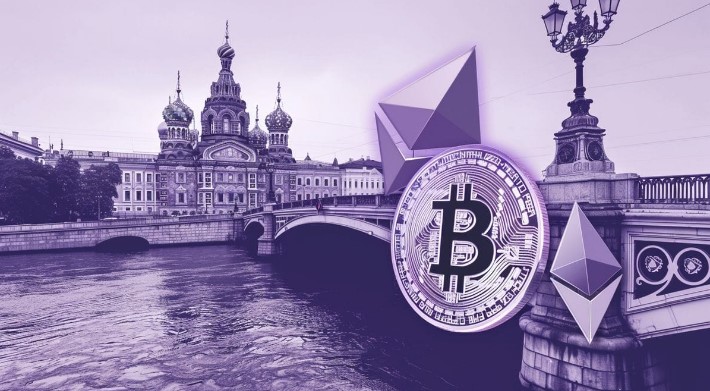Is Russia a crypto hub? Reports suggest 9 million Russians own crypto, but some analysts are skeptical. New laws & a central bank digital ruble could impact adoption.
Valery Petrov, Vice President of the Russian Association of Crypto Industry and Blockchain (RACIB), stated on June 4 that his organization believes that “approximately” nine million citizens possess cryptocurrency, according to the Russian-language media outlet Comnews.
Are 9 million Russians indeed in possession of cryptocurrency? Divergent Opinions among Experts
Petrov was responding to the findings of an earlier report from Triple-A, which asserted that 9.2 million Russians possess tokens.
If accurate, this would indicate a nearly 6% increase in Russian cryptocurrency owners. The data in the report shows that more than 12% of the total working-age population of the Russian Federation possesses coins.
Rosstat, the state-run statistics agency, recently asserted that “76.235 million Russians are of working age.”
Therefore, this would suggest that approximately 12% of all Russian employees possess cryptoassets.
Nevertheless, not all experts concur. Nikita Stepanov, an analyst at Finam, expressed his apprehension regarding the assertions.
Stepanov clarified that the fact that many crypto holders have multiple token wallets may have influenced the report’s findings.
Sanctions Drive Russians to Embrace Crypto
He also believed Western sanctions may have unduly inflated the Russian crypto market. Stepanov elaborated:
“The trend toward the increasing popularity of cryptocurrencies may affect the economy somewhat, but the effect is not large. Basically, the use of cryptocurrencies in Russia is largely limited to international transfers. [Russians have been using crypto] because it does not make use of traditional payment networks such as SWIFT. And therefore [it is a means of bypassing] sanctions.”
Stepanov also stated that the interest in cryptocurrency in Russia would likely be temporary. The expert suggested that the number of token holders would likely stay the same.
He asserted that state efforts to establish a Russian CBDC would ultimately undermine the adoption of crypto. Stepanov stated:
“In the long term, it will be difficult for cryptocurrencies to become anything more than a ‘crutch’ for use in the remittances sector. The Russian state and the Central Bank are planning to spearhead the mass adoption of digital currencies.”
Implementing a Digital Ruble Set may Diminish the Potential for Cryptocurrency Adoption
Russian officials have already discussed the potential of the digital ruble to be employed in international trade agreements.
The Central Bank intends to conclude a pilot program expedited this year in anticipation of a nationwide implementation in 2025.
Nevertheless, Petrov expressed a more optimistic outlook regarding the potential for cryptocurrency to be adopted in Russia. He stated that the long-awaited crypto mining regulation law would likely be implemented within the next few months.
Nevertheless, he acknowledged that this legislation would likely restrict the methods by which Russians could acquire and trade cryptocurrency.
The law will likely prohibit the operation of nearly all crypto exchanges in Russia. Crypto trading services will be restricted to a small number of authorized sandbox operators.
However, reports have indicated that industrial crypto processors and cross-border trade firms will exclusively utilize these.
As a result, Petrov stated that “Russian cryptocurrency owners” will likely be compelled to “operate exclusively with fiat assets they hold outside the country.”
Petrov concluded that this would likely result in a minimal increase in the scale of the Russian crypto market in the months ahead.
The claims conflict with a report that the Central Bank released in May. The bank asserted that “in comparison to the second and third quarters of 2023,” 16.4% more Russians visited overseas crypto platforms in the first quarter of FY2024.
The bank also noted a significant increase in Russian holders of stablecoins pegged to the United States dollar, such as USDT.
The bank has cautioned Russians that they are at risk when trading stablecoins, as Western governments may ultimately require operators to freeze wallets associated with Russia.
